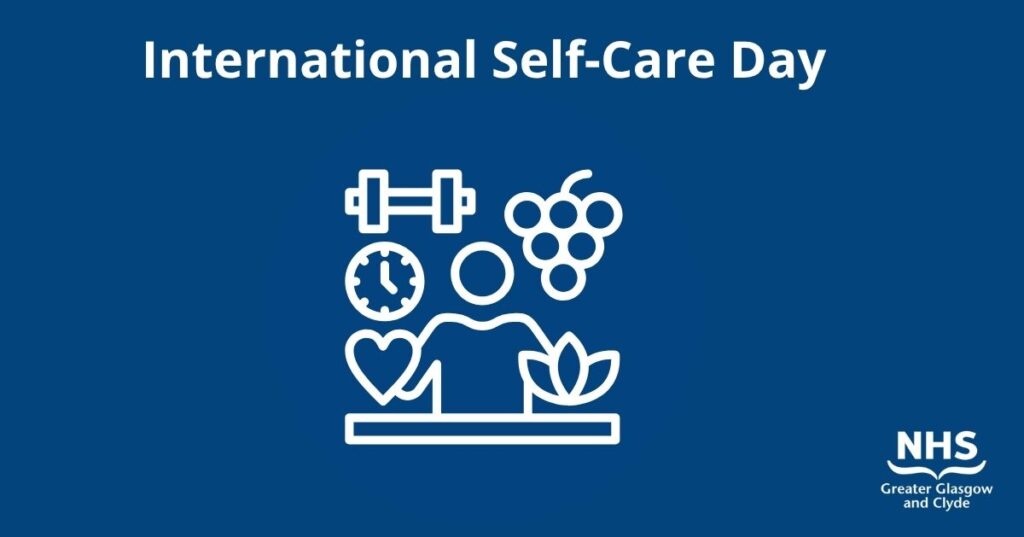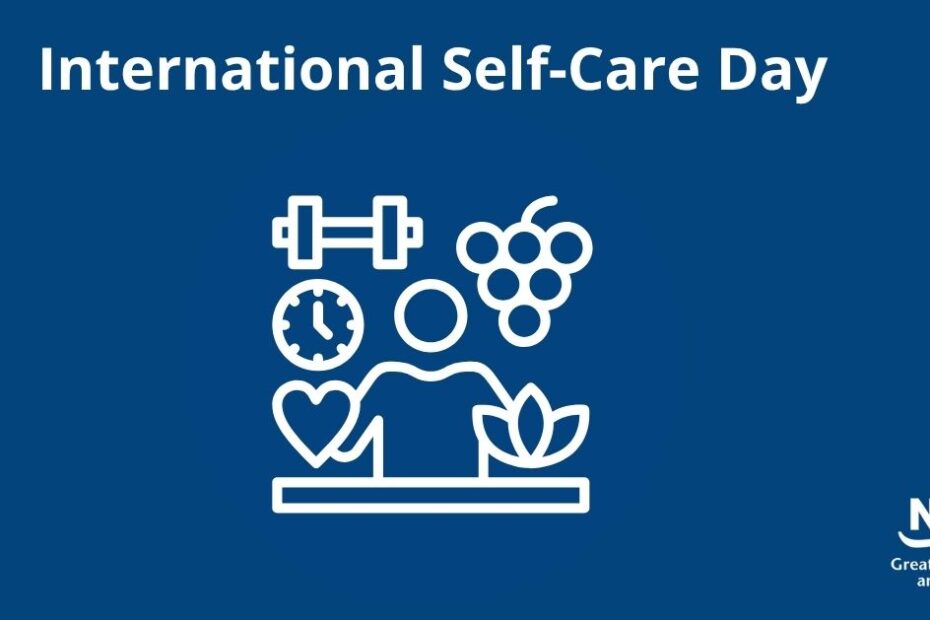
NHS Greater Glasgow and Clyde (NHSGGC) is urging people to mark International Self-Care Day by thinking carefully about how they can take care of their own health and wellbeing.
Self-care is anything we do to keep ourselves mentally, emotionally, physically, socially and spiritually healthy. It could be something as simple as taking a walk, eating healthily or spending time with friends.
International Self-Care Day is observed every year on the 24th of July to underscore the role of self-care as a “24/7” consideration in preventing illness, managing chronic conditions, improving mental health, and helping to support the NHS.
Beatrix Von Wissmann, Consultant in Public Health at NHS Greater Glasgow and Clyde, said: “Self-care is one of the simplest and most effective ways people can help themselves while also supporting the NHS.
“We often view self-care as a ‘luxury’ and it’s usually the first thing to go when our life or work gets busy, demanding and challenging. However, if we don’t practice and prioritise self-care, we risk our well-being and invite burnout.
“Being active, having a healthy diet and planning ahead are all small steps that can make a huge difference.”
Here are a few simple ways to take care of yourself, and support the NHS:
- Get active: Do what works for you. A gentle walk, wheel or some exercise can get you out in nature and fresh air, simple steps that are proven to lift your spirits and boost your physical health.
- Eat a balanced diet: Healthy eating is essential for maintaining overall wellbeing. You can find advice here.
- Find support: Our dedicated mental health app can help you recognise and manage triggers, be aware of your symptoms, and discover tips for managing your mental health and wellbeing, including sleep, breathing exercises, eating healthy food or starting a new routine.
- Quit smoking: You can get support to stop smoking through the Quit Your Way service.
- Get the right help when you need it: Getting the right help, from the right place, at the right time is one of the best things we can all do to look after ourselves and to help ease the pressure on the NHS. By doing this, people help us to prioritise care for the most urgent and life-threatening cases, while also being more convenient and simpler for you. Every community pharmacy in Scotland provides the NHS Pharmacy First Scotland service, which offers advice, support and treatment for a range of minor ailments from coughs and colds to earache and heartburn. Anyone can walk in and be seen by a qualified member of the pharmacy team, with no appointment necessary.
- Get ready: Here are some common treatments and can be useful to have to hand to treat minor symptoms. If you are unsure about symptoms or have concerns or questions about taking any treatment, please speak to your local community pharmacist:
- Painkillers – paracetamol and ibuprofen tablets for headaches, pain or fever.
- Antiseptic cream – to help clean minor cuts and abrasions.
- Plasters and bandages – having a small selection to hand will help with a range of cuts and scrapes.
- Antihistamines – to treat mild allergic reactions and hay fever.
- Practice good hand hygiene to stop the spread of infection.
Choosing self-care where appropriate helps to support a sustainable NHS for everyone. For further information about prioritising self-care, you can download more tips here.
For urgent conditions which are not life-threatening, we would ask people to contact NHS 24 on 111. They will ensure you are referred to the most appropriate service for your condition, which could include a Minor Injuries Unit or our Virtual A&E.
Help is also available in the community, with GPs, pharmacies, dentists and opticians providing a range of services. Accessing the right care is as easy as ABC:
- Ask yourself: Do I need to go out? For information on keeping yourself well and treating minor illnesses and injuries from home, go to NHS Inform or download the NHS24 app.
- Be aware: There is help right on your doorstep. Your local GP, pharmacy, dentist, or optician offer a range of services.
- Call 111: If it’s urgent, or you’re not sure, call NHS24 on 111. They’ll make sure you get the help you need.
Please remember, if you think your condition or injury is very urgent or life-threatening, you should call 999 or go to A&E immediately. For more information on accessing the care you need, please go to: Right Care, Right Place – NHSGGC

